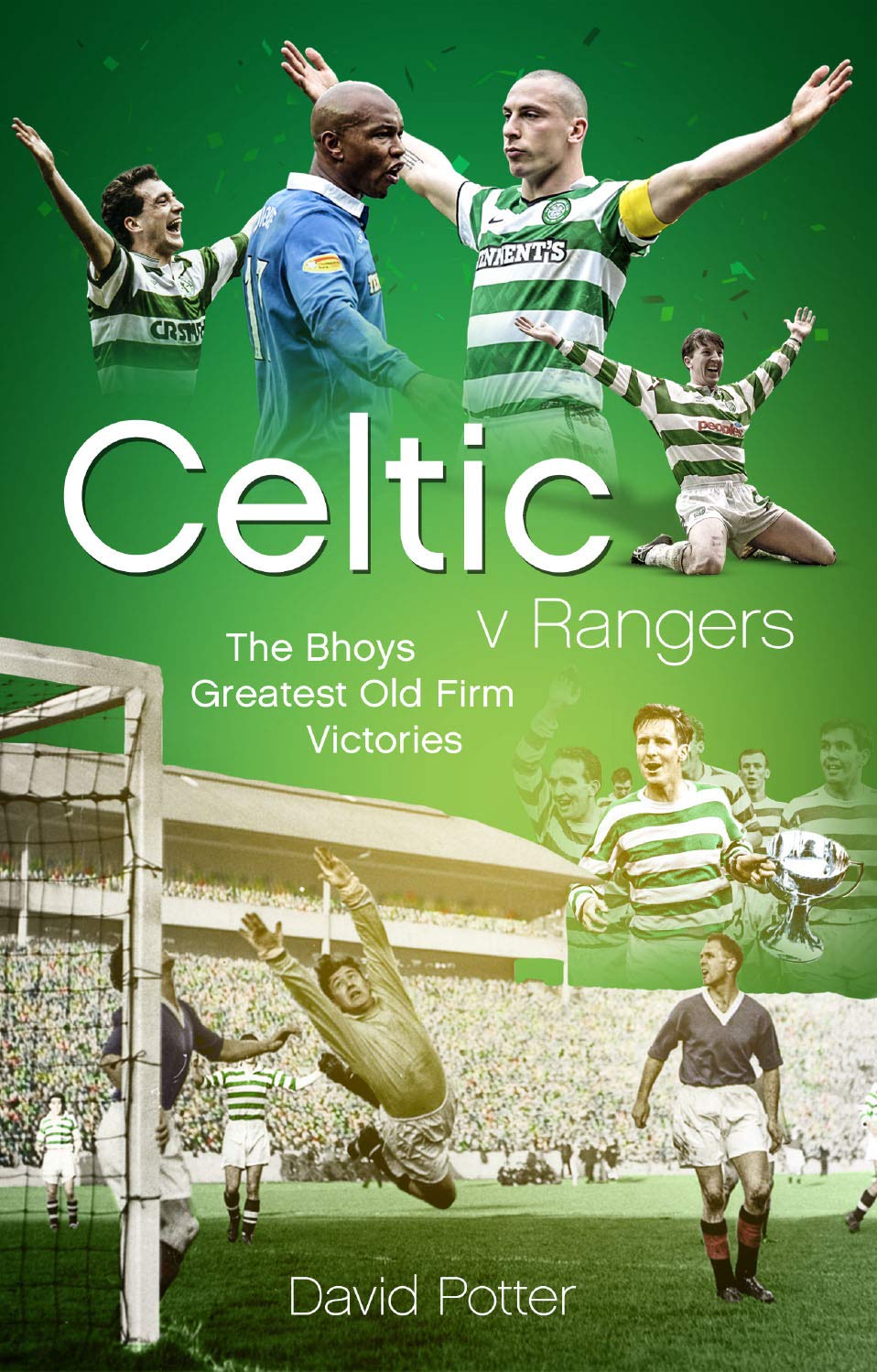The uber-atmospheric Celtic Park of today is different. Sometimes it is better to watch these games on TV in your house (not in a pub where you can’t always tell the loyalties of the man standing beside you!). But going to the game gives you a great feeling of excitement and also comfort in the sense that you will never walk alone. The noise is unbelievable (at Celtic Park) and the passion of everyone is clear to see. The game simply means so much to so many people.
Dean Perretta: With regards to the “Celtic v Rangers: The Hoops’ Fifty Finest Old Firm Derby Day Triumphs” book, can you describe the creative process of this very unique book and, of course, the contributions contained within the book?
David Potter: Whether we like it or not, Celtic supporters like beating Rangers, sometimes to a disproportionate and unhealthy extent, and I felt that they would like to read about our greatest victories over Rangers throughout the years. Not every game is a pounding. Obviously the 7-1 of 1957, the 5-0 of 1925 and the 6-1 of 1966 are included, but a 1-0 win can also be a great one if it means something. My methods tend not to rely overmuch on players’ recollections, (which can be biased and one-sided) but rather on the (Old Firm derby) game from a spectator’s point of view, backed up with newspaper reports with a nod sometimes to what is going on in the outside work.
Dean Perretta: Glasgow’s Old Firm Derby between Celtic and Rangers has well-documented links with the Sectarianism rivalry with Roman Catholics and Protestants. With that being said, can you talk about historical sectarianism in Glasgow and the deeper meaning of the rivalry between these two very storied and highly decorated clubs?
David Potter: I would like to drive a horse and cart through sectarianism! It is certainly there (in Glasgow), but there is nothing inevitable about it because I myself am a non-Catholic, as indeed were my father and grandfather both of whom loved the Celtic just the same as I do. That said, I love rebel songs and have the greatest admiration for the struggle of the Irish against British oppression throughout the centuries, and see parallels with the emerging nationhood of Scotland. The rivalry is a passionate one, but it must stop after the game is over. There is no real place for sustained hatred. Passion during the 90 minutes, yes, but it must go no further. I am proud to say that I have many friends who support Rangers. I always said about my father that the word “Celtic” was written on his heart in such large letters that there was no room for hatred or rancour towards anyone else.
